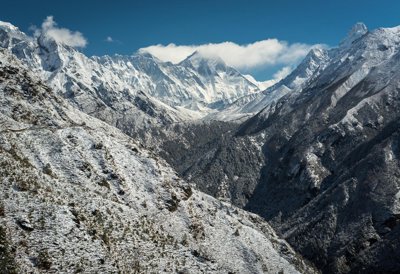How did you get to where you are now?
Since taking geography as a major subject in high school in my home country Luxembourg, I have always had a great interest in physical geography and specifically rivers. In 1999, I started my MA Joint Honours degree in Geography and Environmental Science at the University of Dundee, where I received several awards for my study achievements. After graduating, I completed both the M.Sc. (Remote Sensing) and Ph.D. (Geography) degrees from the University of Dundee in 2005 and 2008, respectively. Both my MSc and PhD research studies focused on pushing the science of integrating satellite flood data with flood inundation modelling and this has put me at the forefront of this research which is now gaining more scientific attention.
After taking up a lectureship at the University of Bristol Hydrology Group, a world-leading research team in flood modelling, I started a research position at the NASA Jet Propulsion Laboratory (JPL) in 2012. There I worked on flood simulations for the upcoming NASA/CNES Surface Water Ocean Topography (SWOT) satellite mission, the first ever satellite mission dedicated to hydrology. Since 2015, I have gained experience in the private research and development sector while still keeping my academic endeavors and affiliations a top priority.
Was there anything particularly useful that helped you get into this role?
Yes, I landed the job at NASA JPL in 2012 (which, subsequently, opened a lot more doors) because of my time and experience at the University of Bristol, which in turn was possible because of my university studies and degrees in geography.
What do you do as part of your role?
I am a research scientist, wearing an academic and a private sector research and development hat. Most of my current work and projects focus on simulating river hydrodynamics and floodplain inundation and integration with remote sensing. Although I have several active affiliations, I need to guarantee my own salary by regularly applying for research or application development grants from government funding bodies, NGOs and a number of international organizations, and even from some private businesses.
I also do a lot of expert scientific consulting to NGOs, aid development institutions and humanitarian organizations, such as the World Bank and the United Nations World Food Programme. In addition, I give guest lectures at a number of higher education institutions worldwide and organize workshops on topics surrounding flooding and flood risk. I am also very active in flood disaster response assistance, and in academia and academic publishing. This means I write papers, collaborate with many former and new colleagues and attend several scientific conferences a year.
What skills and characteristics do you need for this role, apart from geographical knowledge?
Excellent communication and scientific writing skills as well as innovative ideas.
How does geography feature in your work/what difference does it make?
Being skilled in geography and geographical sciences in general helps me stay multi-disciplinary and at the forefront of timely research needs and also helps me stay knowledgeable about how science can impact the environment and society. Geography is naturally linking all three.
What are the opportunities for career progression? Where might you be in five years’ time?
The opportunities for career progression in my case are manifold. In five years, I would like to run my own private sector research and development institution, which I am slowly starting to build in Luxembourg.
What advice would you give to someone wanting to go in to this career?
The career path I have chosen is somewhat a hybrid one, a mix between academia and private sector research and development, so this may clearly not be for everyone. The freedom I enjoy comes at a relatively high price. You need to constantly ensure that you have enough funding to secure your own salary and that of your team (if you get a team) and also make sure you keep your academic affiliations active and your scientific publication record increasing, which requires a lot of effort to achieve in combination. You really need to love the science, the writing and, above all, the risk of the competitive research funding world.
Why did you choose geography? Why should others choose geography?
Geography is very much an inter- and multi-disciplinary field and naturally links the human and natural environment. Geography (or geographical sciences or geosciences) is now gaining a whole new meaning also in the private sector industry, particularly with the proliferation of open geospatial data, advances in remote sensing and computing technologies, data and model interoperability, and the general public as well as industry becoming much more science aware. “Go for geography” is all I can say.
* This interview was undertaken in 2019 and was correct at the time of publication. Please note that the featured individual may no longer be in role, but the profile has been kept for career pathway and informational purposes.
Dr Guy Schumann
Job title: Principal Scientist
Organisation: Remote Sensing Solutions and RSS-Hydro
Location: USA and Europe (Luxembourg)

